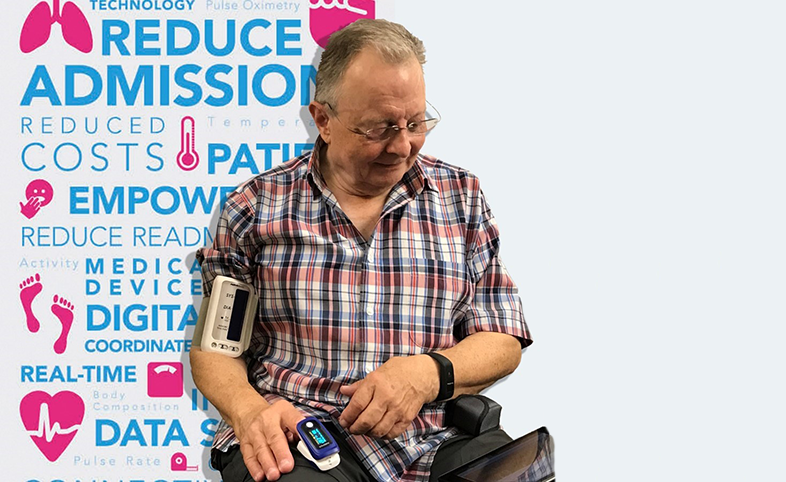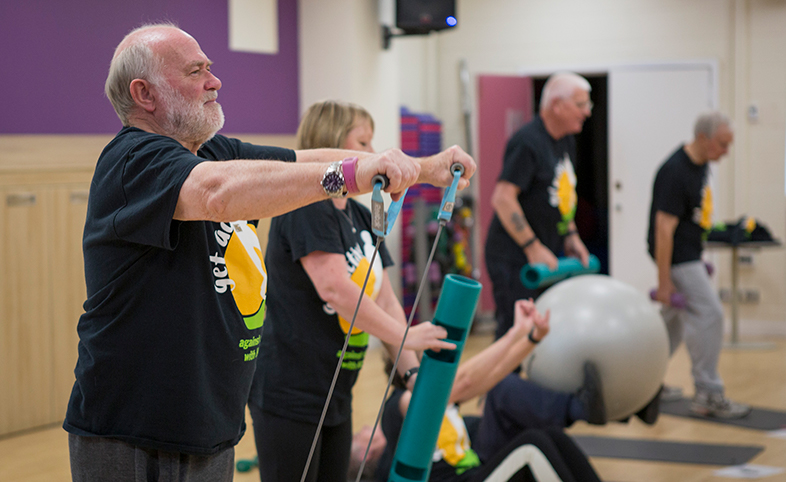Findings of Active+me REMOTE published in journal
Cardiac rehabilitation is a programme of education and training available on the NHS to anyone who has had a heart attack, cardiac surgery or a diagnosis of heart failure. When the COVID-19 pandemic struck, hospitals had to quickly pivot how they delivered services to keep patients safe.
With funding from Innovate UK, Health Innovation East worked with Cambridge University Hospitals NHS Foundation Trust to pilot delivery of its cardiac rehab programme digitally using Active+me REMOTE by Huntingdon-based company Aseptika. Active+me REMOTE combines exercise classes with monitors to record patients’ health metrics at home which are uploaded to an app and shared with their personal health coach. It aims to enable patients to exercise safely, monitor their own health and improve how they feel about being able to cope living with a heart condition.
The pilot was evaluated by Sheffield Hallam University’s Advanced Wellbeing Research Centre (AWRC), with support from Yorkshire and Humber AHSN. The primary aim of the evaluation was to determine whether participating in cardiac rehabilitation with Active+me REMOTE led to an increase in patient activation measure (PAM) score – a validated, licensed tool that measures people’s knowledge, skills and confidence in managing their own health and healthcare (referred to as ‘patient activation’), scored between 0 and 100. The findings have been published in the BMC Health Services journal and concluded that participation in standard cardiac rehabilitation with Active+me is associated with increased patient activation.
The four levels of PAM scores
Level 1 (45.2 or lower): Disengaged and overwhelmed
Level 2 (47.4-52.9): Becoming aware, but still struggling
Level 3 (56.4-66): Taking action
Level 4 (68.5 or above): Maintaining behaviours and pushing further
Source: NHS England
“I am a lot more aware of my health issues… I became a lot more involved in trying to change that for the better, rather than for the worse” – Female participant, 47 years old
The data showed that the average PAM score increased from 65.5 (level 3 – taking action) to 70.2 (level 4 – maintaining behaviours and pushing further), indicating a potential reduction in the risk of future admission to hospital and use of healthcare services.
Twenty-seven patients saw their score increase whilst 16 went down and four saw no change. High-risk patients showed the greatest increase (the average for that group increased from 61.9 to 75), indicating the greatest benefit for this group. Qualitative interviews with 13 participants indicated that those who engaged with Active+me more often and/or with more components of Active+me achieved a greater increase in PAM scores.
Although the reason for greater improvements in PAM scores among high-risk patients is unclear, it may be linked to greater motivation and therefore higher engagement with the intervention.
Access the full paper online now by clicking here.
Update: Spreading innovation across AHSN boundaries
In August 2022, Yorkshire & Humber AHSN worked with Aseptika to roll out Active+me REMOTE to help patients across the South Yorkshire Integrated Care System (ICS).
Get involved
If you would like to find out more about Active+me or how Health Innovation East can support you in piloting healthcare innovation, contact sarah.robinson@healthinnovationeast.co.uk.
You might also like…
Share your idea
Do you have a great idea that could deliver meaningful change in the real world?
Get involved

